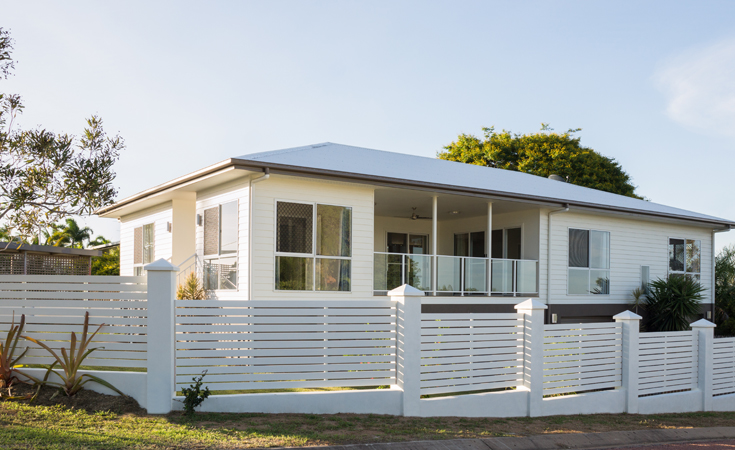We constantly hear the phrase in real estate “location, location, location”, but what if you’re trying to sell a property that doesn’t quite tick that box?
Striking a balance between price, condition and location is key; the price may have to accommodate for the bad location, or the condition of the house must make up the difference. It’s important that you speak to your sales associate to get their insight and guidance on where to price your property in the market, as they can tailor advice to suit your circumstances.
Train lines and busy roads:
Owning a house situated near train lines is usually a plus due to the proximity to public transport. But they can become an issue for buyers if you’re on the frontlines and they’re noisy or a bit of an eyesore. Same goes if your property is near a main road.
If your agent is receiving a lot of negative feedback about them from potential buyers, then see if they would advise considering fencing and screening options to help block out the noise.

If you decide to proceed, be sure to choose a fence or screen that will also compliment your property’s style.
If buyers are still not convinced, it might also be worth asking some friendly neighbours to help assure them that the pros of the house and neighbourhood outweigh the cons of being near train lines or main roads.
Unknown/undeveloped block by your property:
Many buyers get a bit nervous about investing in a home with an undeveloped block next door, as no one wants to discover once it’s too late that a towering apartment block or service station is due for construction.
One of the first questions they’ll have for you is what is planned for next door, so in this case it’s always best to go to the council first to determine what type of building is planned for the block prior to putting your house on the market. That way you can discuss a strategy with your real estate agent about how to work around it.
Bad neighbourhood:
There’s not a lot you can do about being in a “bad neighbourhood” as buyers are savvy and will do their research. The unavoidable truth is that your location will be reflected in the sale price of your home, but what you can do is try and make your home as appealing to potential buyers as possible.
If security is an issue, discuss with your agent if getting an updated security system will help reassure prospective buyers. A secure front gate, alarm system, hedges or screening plants can help partially block the neighbours, so speak to your real estate agent to see if this is right for you.
Screen with trees:
If your property has views of unsightly telephone pylons, overlooking neighbours, train lines, or a busy main road, we recommend investing in mature trees or hedges to create a privacy screen. Even if the plants are not yet mature, most buyers will appreciate the measure. Adding greenery is a great way to add colour and life to your property, as well as disguising problematic areas.
Other noise disturbances:
If noise is a big issue in your area and it is a common qualm in buyer feedback, it may be worth considering some noise reduction measures. Depending on your budget and the level of the noise, installing noise reducing window coverings, insulating the roof and walls or double-glazing windows to areas that are most affected, could work for you.
A front fence and screening plants can also provide a partial barrier against the noise, and helps block out the less-than-desirable view.
We recommend conducting a cost-benefit analysis to figure out the best option for you and discussing this first with your real estate agent to see if it will be worth the expense for you as some of these measures can be quite costly. Then again, it might be something you will use and appreciate yourself in the meantime.
The main thing to remember is that you want to play up the positives and downplay the negatives of your home. By controlling what you can in your home in terms of looks, styling, security and screening, you can help optimise the sale of your home.
Found this article useful? Visit www.peard.com/blog for more.